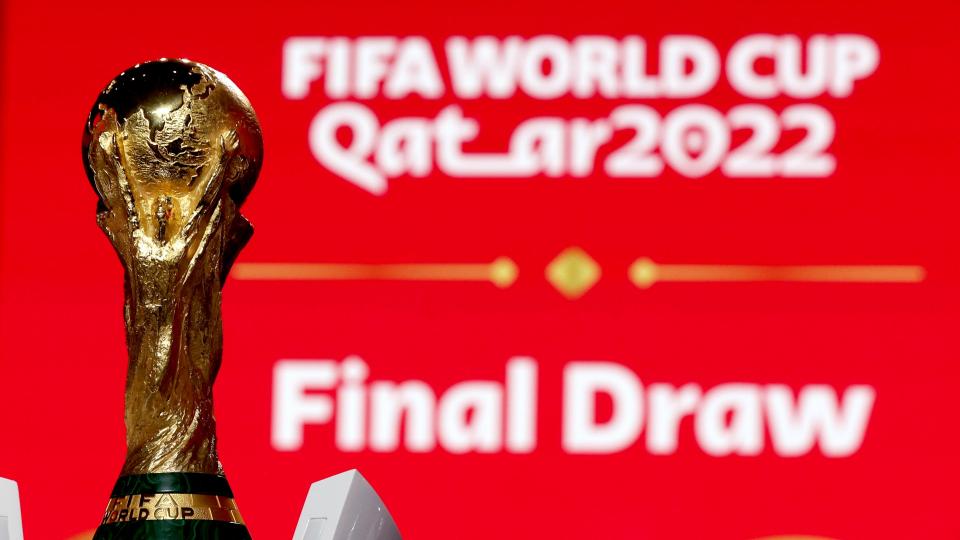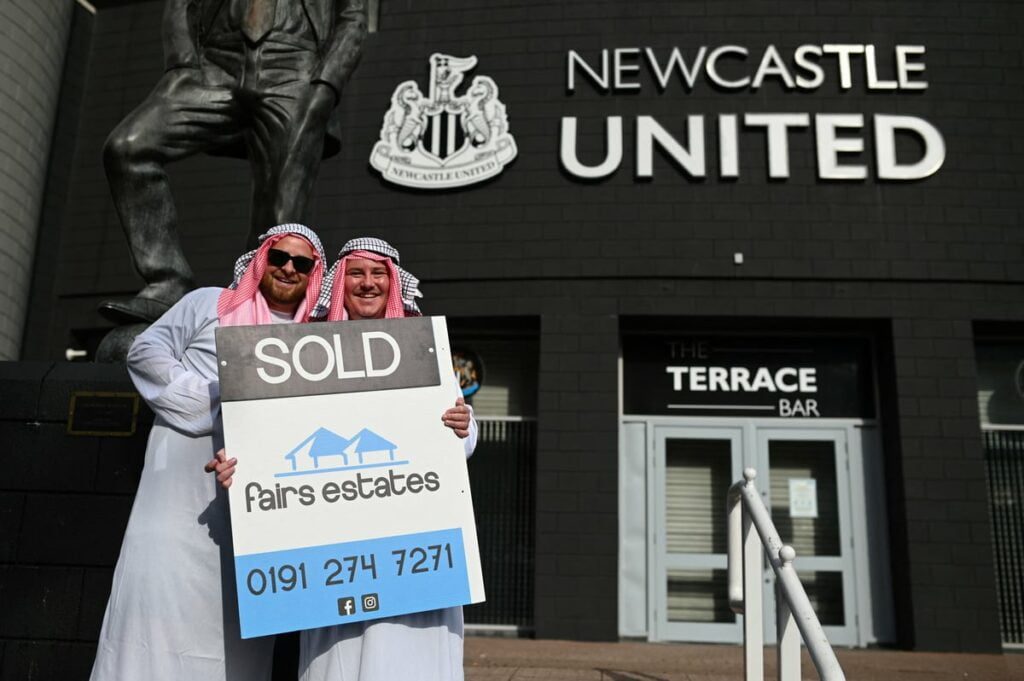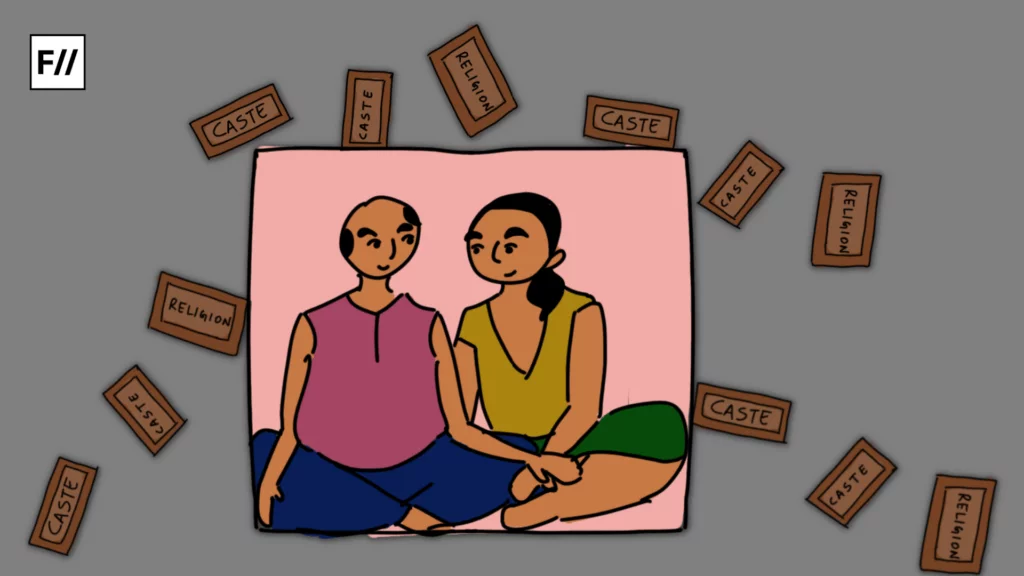“It is not easy to take the criticisms of a decision that was made 12 years ago. Qatar is ready and it will be the best World Cup ever.” These were the words of FIFA president Gianni Infantino while addressing the media at a press conference on the eve of the start of the 2022 World Cup in Qatar. The 2022 edition of what is considered the greatest sports spectacle in the world will be played between November 20 to December 18, and in the Middle East for the very first time.
There has been a lot of controversy surrounding the world cup in Qatar, and especially in the run-up to it. At the top of that list has been Qatar’s poor record of human rights abuse, not just against its own citizens, but against migrant workers who come from across the world to work and make the Middle East’s first world cup a reality.
Sportswashing is a practice adopted by cruel, unjust, fascist nation-states and powerful individuals to use sports and major international sporting events to improve their reputation, by hosting sporting events, purchasing teams in major sporting leagues around the world or through sponsorship of sporting teams. Sportswashing has been used by countries over the years to lift their image on the global platform and divert attention away from human rights violations and abuses in the country.
The road to Qatar winning the bid for hosting the 2022 world cup was a long one, and laden with one of sports’ biggest corruption scandals within FIFA. The US Department of Justice has indicted numerous FIFA officials on a range of crimes including racketeering, wire fraud, and money laundering, in relation to the Qatar bid. Investigators claimed that Qatar spent over at least as much as $15 million to three soccer officials from South America in return for their votes. FIFA and its officials, including former president Sepp Blatter have also been accused of corruption.

These allegations also opened up the gate for large-scale human rights violations in the country, and allegations of Sportswashing against Qatar. There are however multiple layers to the problematics, allegations, and systemic failure when it comes to the world cup in Qatar.
What is Sportswashing?
Former FIFA president Sepp Blatter who was the one to announce Qatar’s successful bid to host the 2022 edition of the world cup, after 12 years has admitted that the decision was a “mistake”. In this context, understanding what is sportswashing and how it impacts the larger global socio-political system, becomes extremely crucial.
Also read: Sportswashing: The Problematic Relationship Between Sports And Human Rights
Sportswashing is a practice adopted by cruel, unjust, fascist nation-states and powerful individuals to use sports and major international sporting events to improve their reputation, by hosting sporting events, purchasing teams in major sporting leagues around the world or through sponsorship of sporting teams. Sportswashing has been used by countries over the years to lift their image on the global platform and divert attention away from human rights violations and abuses in the country.
Radha Lath Gupta, a digital sports journalist and founder of She Talks Ball in a conversation with Feminism in India said that while it is true that football is a unifying game it is extremely important to talk about the underlying abuses and violations when it comes to the Qatar World Cup. “The underlying factors must be discussed, especially when the tournament is being built and run on the outcomes of certain exploitation and abuse”, she adds.

Qatar as a country has had a history of curbing free speech, and freedom of expression. There are also abusive labour laws and a lot of restrictions on women. Furthermore, homosexuality is illegal and punishable by law in the country. While over the years Qatar has faced a lot of criticism for its harsh laws and exploitative working conditions, it is however wrong to blame just Qatar for sportswashing, while not taking into account the same being done by many nations in the west.
Sportswashing happens in the West too
While it is true that the sportswashing debate has gained a lot more ground in the past few years, it would be wrong to assume that it has only been a new and one-off thing. The practice is widespread and has been around for close to a century. It has a much longer and more problematic history than many imagine. The 1934 second FIFA World Cup, hosted by Mussolini’s Italy, and the 1936 Olympic Games held in Hitler’s Berlin were used to legitimise these regimes and promote their totalitarian ideals. The FIFA World Cup of 1978, which was held in Argentina was also another prime example, when the country’s military dictatorship was crushing dissent and torturing those who opposed it.
“Europe should be apologising for the next 3,000 years based on its history of colonialism.”
Gianni Infantino, FIFA president
One of the most recent incidents of sportswashing at a large scale was seen at the last edition of the 2018 FIFA World Cup in Russia. The world cup took place despite an escalating crackdown on peaceful critics, curbing dissent, and workers dying during the construction of stadiums. Amidst political repression and the killing of political opponents, the successful sporting events in Russia acted as cover, and image booster. Hardly anyone questioned Russia hosting the tournament, majorly because it’s a western superpower.
Also read: Male Gaze In Sports: Female Athletes Are Sportspersons, Not Bodies To Be Objectified
So, while western media and analysts and commentators would have us believe that Qatar has started the debate of sportswashing, it is but false. It feeds into the stereotype that the west has for those in south Asia and the middle east, of being “corrupt”, “conservative” and the “other”.
Violations and problems in Qatar
A Guardian investigation found that more than 6,500 migrant workers—from Bangladesh, India, Nepal, Pakistan, Sri Lanka, and elsewhere—have died in Qatar since 2010. Approximately three dozen people have passed away while working directly on World Cup construction. These workers were the ones who worked on building not just the stadiums, but also the hotels and the roads which the players and fans would be staying in.
“Half the world wouldn’t be talking about the abuse and human rights violations in Qatar if the men’s World Cup wasn’t being hosted there. It’s our responsibility as sports fans to not only enjoy the spectacle of the game but also hold bodies accountable. Wearing the pride armband is taking a stand because if you conform in silence, you are just enforcing the problem. I have such strong views because as a women’s football journalist – the women’s teams are very vocal about LGBTQ+ inclusivity, and equal pay and have even boycotted matches and made statements when things were not right. So that’s the basic standard.”
Radha Lath Gupta
The Qatar administration however has said that the total is misleading and those who died had worked in Qatar for several years and could have died from old age or other natural causes. The government said that in its records there were 37 deaths among labourers at World Cup stadium construction sites, only three of which were “work-related”. The International Labour Organisation however has contested this and said that Qatar doesn’t count deaths from heart attacks and respiratory failure as work-related – even though these are common symptoms of heatstroke, because of doing heavy labour in very high temperatures.

Human Rights Watch also revealed that close to one hundred thousand migrant workers experienced grave labour abuses while helping Qatar prepare for the World Cup, and they are yet to receive any financial compensation. While the Qatar government in 2017 introduced measures to protect foreign labourers from working in very hot weather by limiting their working hours, and improving the conditions in workers’ camps, a 2021 report by Human Rights Watch said the workers were still suffering from “illegal wage deductions” and were facing “months of unpaid wages for long hours of work”.
Amnesty International, and Human Rights Watch have been calling for both the funding and creation of a migrant workers centre in Qatar and compensation for families of those workers who died in order to bring the World Cup to life. They estimate that FIFA should pay around $440 million as compensation to the workers.
Add to that the fact that Qatar has a glaring human rights record when it comes to the safety of LGBTQ+ individuals. In Qatar same-sex relations are punishable by a three-year prison term. The Human Rights Watch also reported 11 cases of arbitrary arrests and ill-treatment of people belonging to the LGBTQ+ community between 2019 and 2022 in Qatar.
Qatari officials for the World Cup suggested recently that LGBTQ+ fans would be welcome to attend the event, but also added that any unfurled rainbow flags in Qatar could be confiscated in order to protect those waving them from being physically attacked.
Need to hold FIFA accountable
The organisers of Qatar 2022 have told the media to ‘focus on the football’ FIFA too has written to the 32 teams competing telling them to “now focus on the football”. To only blame Qatar, and absolve FIFA from all accountability would be unfair. A large part of the accountability for the tournaments, the human rights situation, and the unfairness and injustice that many have faced need to be addressed by the football governing body. Over the years, FIFA has slowly transformed into this money-minting and business-making machinery deviating from its larger goal of spreading football and developing the game across the world. The corruption scandals that eventually lead to the resignation of President Sepp Blatter is proof that the essence and the fair play that football as a game stands for can be bought and sold at will by FIFA and its executive committee members.
Also read: Commonwealth Games 2022: The Indian Women Lawn Bowls Team And Gender Discrimination In Sports
Amnesty International, and Human Rights Watch have been calling for both the funding and creation of a migrant workers centre in Qatar and compensation for families of those workers who died in order to bring the World Cup to life. They estimate that FIFA should pay around $440 million as compensation to the workers.
Radha says that while the authorities might think sportswashing is a solution to lift the nation’s image for ardent fans and journalists, it acts to expose the flaws even more. “It stirs up conversations. Half the world wouldn’t be talking about the abuse and human rights violations in Qatar if the men’s World Cup wasn’t being hosted there. It’s our responsibility as sports fans to not only enjoy the spectacle of the game but also hold bodies accountable”, she adds.
FIFA president Gianni Infantino accused the West of ‘hypocrisy’ in his recent press conference and said that “Europe should be apologising for the next 3,000 years based on its history of colonialism.”
While his words are true, and there exist different bars against which countries in the west (Argentina, Russia) and those in the south and the middle east are measured, it still cannot be an excuse for unwarranted human rights abuse.
Players from different countries have spoken up time and again about the sportwashing that is on display at Qatar. The Australian football squad released a video criticising Qatar for mistreating migrant workers. Danish players will wear a “toned-down” all-black kit to protest against Qatar’s human rights’ record.
“The players are representing millions of people in their country when they step on the pitch to play any sport. They are representing the diversity present back home, and they are influential figures. I don’t think players and politics should remain separate. Wearing the pride armband is taking a stand because if you conform in silence, you are just enforcing the problem. I have such strong views because as a women’s football journalist – the women’s teams are very vocal about LGBTQ+ inclusivity, and equal pay and have even boycotted matches and made statements when things were not right. So that’s the basic standard,” says Radha.
Also read: Female Bodies In Sports And The Body Policing They Are Often Subjected To
Sports is considered to be a great equaliser. Football is still regarded as something good, something fair, something that gives you joy. While football should and must move beyond the European frontier and open to the rest of the world to witness, those in charge also must ensure that this is done in a fair manner and human rights violations and injustices are not a part of it. While the first world cup in the middle east should be celebrated, it does not mean one must forget that the path to the same has been that of violations and abuse, and dehumanising behaviour against those who made it possible.
About the author(s)
Shriya is a former student of literature and a multimedia journalist with an interest in sports and human rights. She can be found watching Shah Rukh Khan movies or listening to Ali Sethi and 90s Bollywood songs. She enjoys a good cup of black coffee multiple times a day and is often compared to 'Casper, the friendly ghost'.





I am glad that Indian journalists are starting to use Qatar to speak up about Indian LGBTQ issues. I hope that there is more light shone on how discrimination against LGBTQ should be fought more proactively by media.